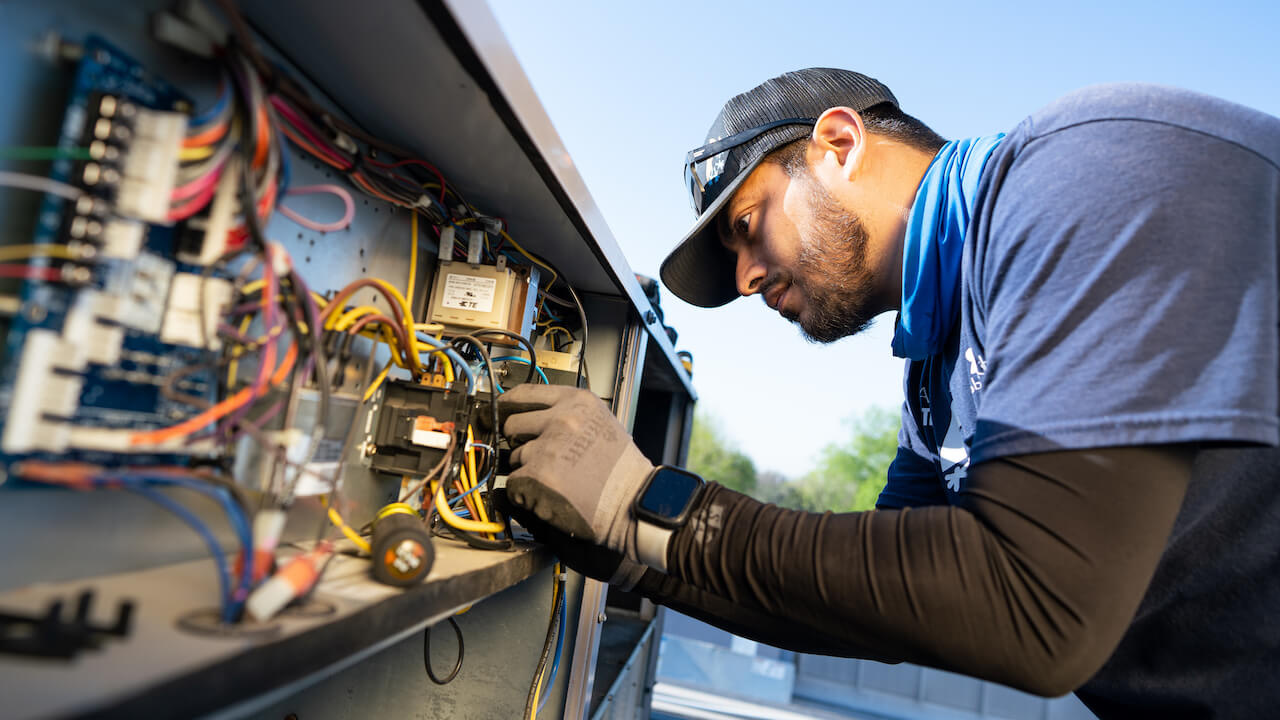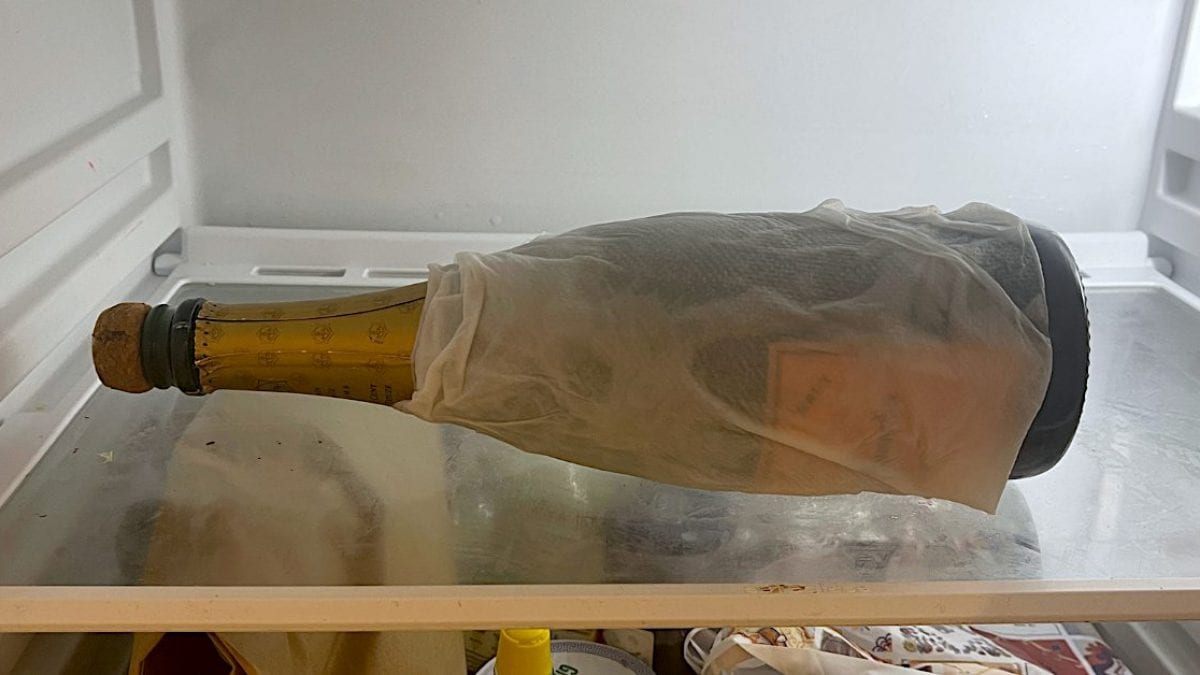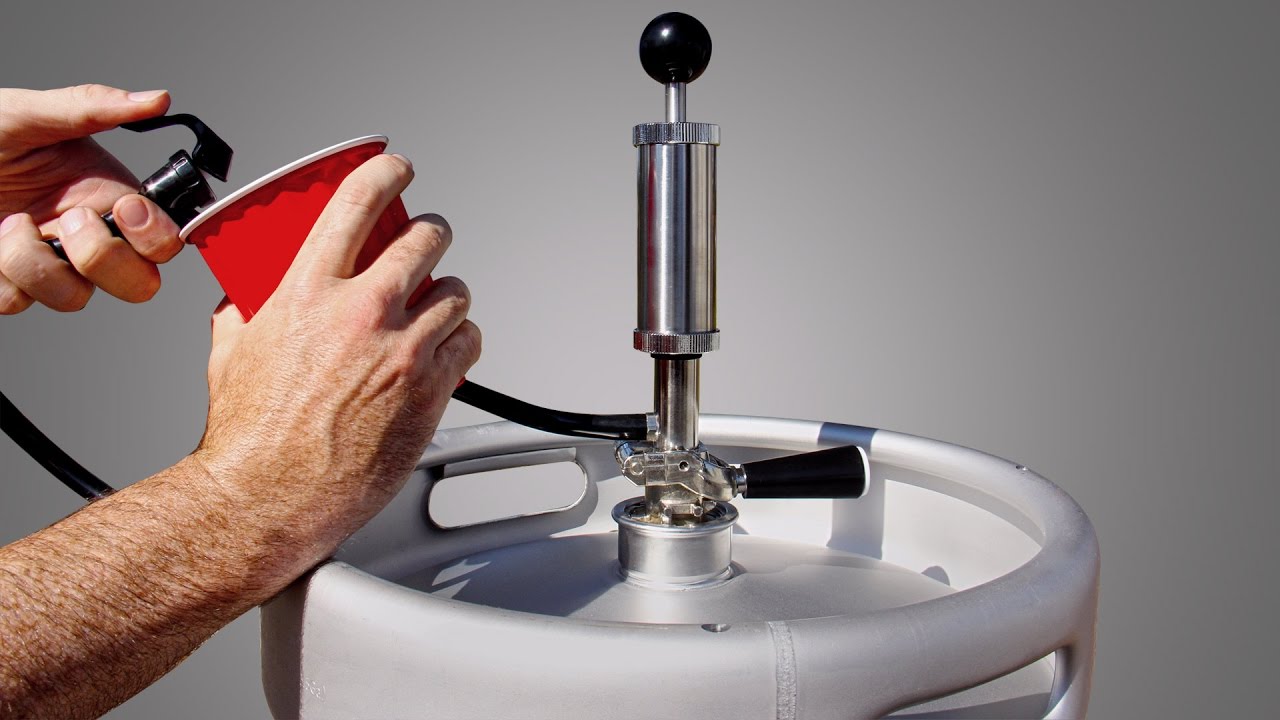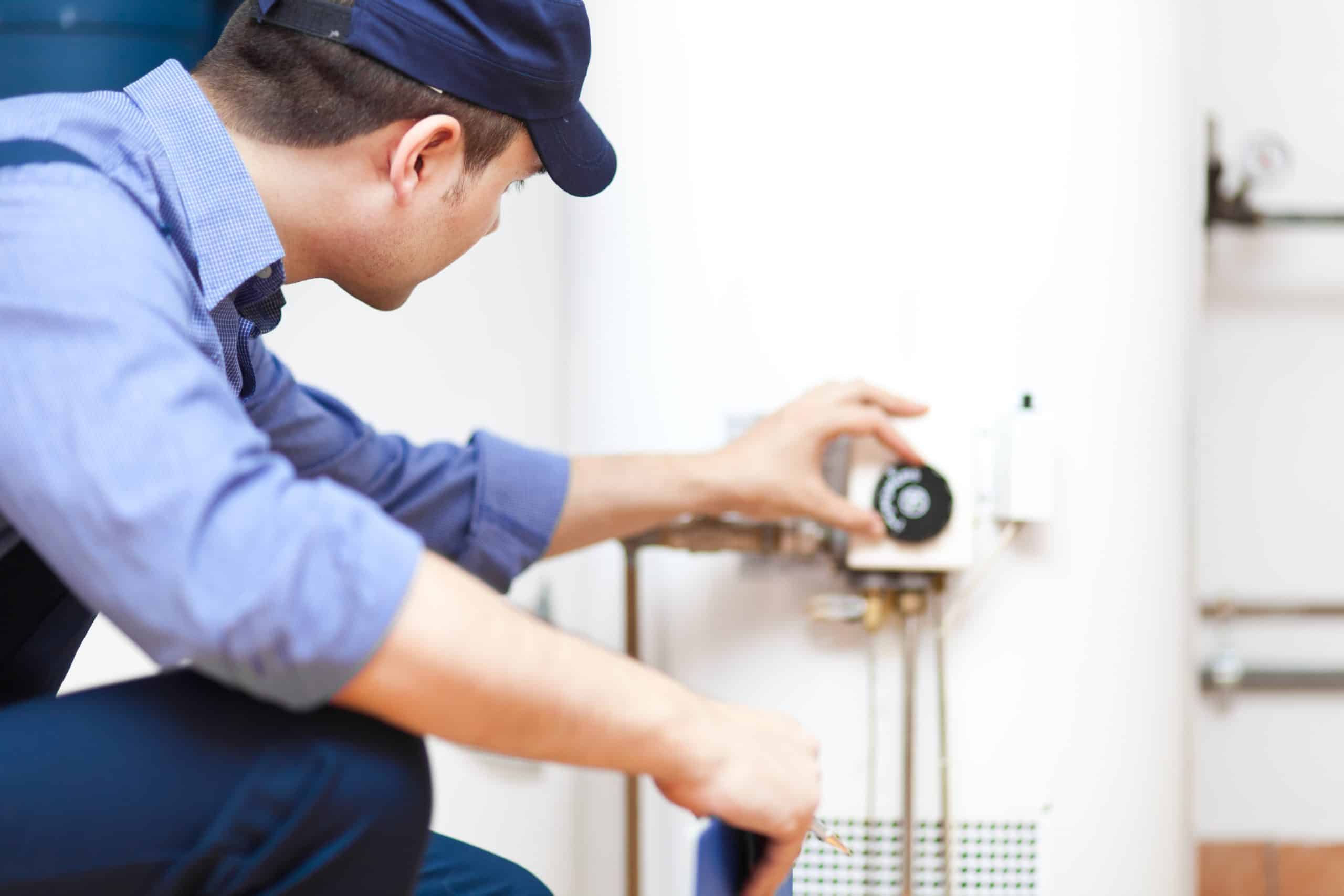Home>Articles>How Long Does It Take To Get Certified In HVAC


Articles
How Long Does It Take To Get Certified In HVAC
Modified: December 7, 2023
Discover articles on how long it takes to get certified in HVAC to kickstart your career in the heating, ventilation, and air conditioning industry.
(Many of the links in this article redirect to a specific reviewed product. Your purchase of these products through affiliate links helps to generate commission for Storables.com, at no extra cost. Learn more)
Introduction
When it comes to heating, ventilation, and air conditioning (HVAC) systems, having the proper training and certification is crucial. HVAC certification indicates that an individual has demonstrated the knowledge and skills necessary to professionally install, maintain, and repair HVAC systems.
In today’s competitive job market, HVAC certified professionals have a distinct advantage. Employers prioritize hiring technicians who have received proper training and certification, as it showcases their expertise and commitment to the field.
In this article, we will explore the different types of HVAC certifications available, the importance of certification, factors that can affect the time required to become certified, and the steps to obtain HVAC certification.
Whether you are considering a career in HVAC or want to advance your existing skills, understanding the certification process is essential.
Let’s dive into the world of HVAC certification and discover how long it takes to become certified.
Key Takeaways:
- HVAC certification is essential for career advancement, job security, and industry recognition. It opens doors to higher-paying opportunities and showcases a technician’s commitment to excellence and continuous professional development.
- The duration of HVAC certification programs varies, influenced by factors such as educational background, program intensity, level of certification, hands-on training, and individual learning speed. It’s crucial to find a balance between comprehensive education and practical experience.
Read more: How Long Does It Take To Get A HVAC License
What is HVAC Certification?
HVAC certification is a professional designation that verifies an individual’s skills and knowledge in the field of heating, ventilation, and air conditioning systems. It serves as evidence that a technician has received the necessary training and education to safely and effectively work on HVAC equipment.
Certification programs typically cover a wide range of topics, including electrical systems, refrigeration principles, heating and cooling systems, airflow calculations, and system design. These programs aim to provide technicians with the technical know-how and hands-on experience required to excel in the HVAC industry.
Obtaining an HVAC certification demonstrates a technician’s competency in areas such as system installation, troubleshooting, maintenance, and repair. It validates their ability to follow industry standards and safety protocols, ensuring efficient and reliable HVAC operations.
There are various types of HVAC certifications available, offered by different organizations and institutions. These certifications may focus on specific areas of expertise within the HVAC field, allowing technicians to specialize in areas like residential HVAC, commercial HVAC, refrigeration, or air balancing.
In addition to the technical aspect of HVAC certification, some programs also include coursework on customer service, communication skills, and business management. These additional skills are crucial for technicians who wish to provide exceptional customer service and grow their career in the industry.
Having an HVAC certification not only enhances the credibility and professionalism of a technician, but it also opens up a wide range of job opportunities. Employers often prioritize hiring certified technicians, as it demonstrates their commitment to their craft and their willingness to stay up-to-date with the latest industry standards and advancements.
Overall, HVAC certification serves as a mark of excellence within the industry and is an essential step for technicians seeking to establish a successful and rewarding career in the HVAC field.
Types of HVAC Certifications
There are several types of HVAC certifications available, each focusing on specific aspects of heating, ventilation, and air conditioning systems. Here are some of the most common types of HVAC certifications:
- EPA Section 608 Certification: This certification is required by the Environmental Protection Agency (EPA) for technicians who work with refrigerants. It is divided into four levels: Type I, Type II, Type III, and Universal. Each level represents a different skill level and allows technicians to handle specific types of refrigerants.
- NATE Certification: The North American Technician Excellence (NATE) certification is widely recognized in the HVAC industry. It focuses on the installation, maintenance, and repair of HVAC systems. NATE offers certifications in various areas, including air conditioning, heat pumps, gas furnaces, and more. Technicians can choose to obtain one or multiple certifications depending on their areas of specialization.
- ACCA Certification: The Air Conditioning Contractors of America (ACCA) offers several certifications for HVAC professionals. These certifications cover technical aspects such as system design, load calculation, energy efficiency, and indoor air quality. ACCA certifications are highly regarded and recognized as a mark of expertise in the HVAC industry.
- BPI Certification: The Building Performance Institute (BPI) offers certifications that focus on energy efficiency and building performance. These certifications emphasize techniques for improving energy efficiency, reducing carbon footprint, and enhancing indoor comfort. BPI certifications are valuable for technicians involved in energy auditing, weatherization, and home performance assessments.
- Manufacturer-Specific Certifications: Many HVAC equipment manufacturers offer their own certifications to ensure proper installation and maintenance of their products. These certifications demonstrate a technician’s proficiency in working with specific brands or types of HVAC systems, providing added credibility when working with those particular products.
These are just a few examples of the types of HVAC certifications available. Depending on their career goals and areas of interest, technicians can choose the certifications that best align with their specialization and professional aspirations. Obtaining multiple certifications can further enhance a technician’s skills and make them more versatile in the HVAC industry.
It’s worth mentioning that certifications typically require candidates to pass an exam to demonstrate their knowledge and competence. Additionally, some certifications require ongoing continuing education to ensure technicians stay updated with the latest industry practices and technology advancements.
By obtaining relevant HVAC certifications, technicians can showcase their expertise, expand their job prospects, and stay competitive in the ever-evolving field of heating, ventilation, and air conditioning.
The Importance of HVAC Certification
HVAC certification holds significant importance for both technicians and employers within the industry. Here are some key reasons why HVAC certification is crucial:
- Ensuring Safety: HVAC systems involve working with various electrical components, refrigerants, and potentially hazardous equipment. Certification ensures that technicians have the necessary knowledge and skills to handle these systems safely, reducing the risk of accidents, injuries, and property damage.
- Meeting Industry Standards: HVAC certification demonstrates that technicians are well-versed in industry best practices and adhere to recognized standards. This helps maintain consistency and ensures that HVAC systems are installed, maintained, and repaired correctly, optimizing their performance and longevity.
- Enhancing Professionalism and Credibility: Certification signifies that technicians have undergone the necessary training and education to excel in their field. It differentiates them from unqualified individuals, establishing their credibility and professionalism in the eyes of employers and customers.
- Expanding Job Opportunities: Many employers prioritize hiring technicians with HVAC certification. Certification provides a competitive edge and opens doors to a wider range of job opportunities. It demonstrates a technician’s commitment to their craft and enhances their marketability in the job market.
- Advancing Career Growth: HVAC certification can lead to career advancement. It equips technicians with specialized skills and knowledge that make them eligible for higher-level positions, increased responsibilities, and potentially higher salaries. Additionally, certified technicians are more likely to qualify for promotions and managerial roles within the HVAC industry.
- Staying Abreast of Industry Trends: HVAC certification requires technicians to stay updated with the latest advancements, regulations, and industry trends. Ongoing continuing education is often a requirement to maintain certification. This ensures that certified technicians are knowledgeable about emerging technologies, energy-efficient practices, and environmentally friendly HVAC solutions.
- Delivering Quality Service: Certification reinforces a technician’s competence and expertise in HVAC systems. This enables them to provide exceptional service to customers, ensuring that installations and repairs are performed with accuracy and efficiency. Certified technicians have the skills to diagnose and resolve complex issues, optimizing HVAC system performance and customer satisfaction.
In summary, HVAC certification is key to ensuring safety, meeting industry standards, enhancing professionalism, expanding job opportunities, advancing career growth, staying updated with industry trends, and delivering high-quality service. It is an investment that not only benefits technicians but also provides peace of mind to employers and customers, knowing that their HVAC systems are in capable hands.
Factors Affecting the Time Required for HVAC Certification
The time required to obtain HVAC certification can vary depending on several factors. Here are some key factors that can influence the duration of the certification process:
- Educational Background: The educational background of an individual can impact the time required for HVAC certification. If someone already has a background in a related field, such as electrical or mechanical engineering, they may be able to grasp HVAC concepts more quickly, potentially shortening the certification timeline.
- Program Length and Intensity: The length and intensity of the HVAC certification program play a significant role in determining the time required for completion. Some programs may last only a few weeks or months, while others can span several years. Full-time programs tend to be more intensive and may be completed more quickly, whereas part-time or online programs allow for a more flexible schedule but may take longer to finish.
- Level of Certification: The level of certification pursued can impact the duration of the certification process. Some certifications have multiple levels, with each level requiring additional training and experience. Higher-level certifications often require more in-depth coursework and practical experience, which may extend the overall duration of the certification process.
- Hands-on Training: Practical, hands-on training is an essential component of HVAC certification. The availability and duration of hands-on training opportunities can affect how long it takes to become certified. Programs that offer extensive hands-on training may require more time to allow students to gain the necessary practical experience before obtaining certification.
- Individual Learning Speed: Each individual has their own learning speed and ability to absorb information. Some may grasp HVAC concepts and skills quickly, while others may require more time and practice. The pace at which an individual can complete coursework and pass exams can impact the duration of their certification journey.
It is important to note that while these factors can influence the time required for HVAC certification, they should not compromise the quality of the training. The key is to find a program that provides a balance of comprehensive education and practical experience, allowing individuals to develop a strong foundation in HVAC knowledge and skills.
In the end, the time required for HVAC certification is subjective and can vary from person to person. It is important for individuals to evaluate their specific circumstances, goals, and commitment to determine the most suitable path for obtaining their HVAC certification.
The time it takes to get certified in HVAC can vary depending on the program and your dedication. Typically, it can take anywhere from 6 months to 2 years to complete a certification program.
Read more: How Long Does It Take To Install HVAC System
Duration of HVAC Certification Programs
The duration of HVAC certification programs can vary depending on the type of program and the level of certification being pursued. While some programs can be completed in a matter of weeks or months, others may take several years to finish. Here are some general guidelines regarding the duration of HVAC certification programs:
- Short-Term Certification Programs: Some vocational schools, trade schools, and community colleges offer short-term HVAC certification programs that can be completed in as little as a few weeks or months. These programs often focus on basic HVAC skills and provide an entry point into the industry. While these programs provide a quick path to certification, they may not cover all aspects of HVAC or offer in-depth training.
- Associate Degree Programs: Associate degree programs in HVAC typically take around two years to complete. These programs provide a more comprehensive education, covering a wide range of topics such as electrical systems, refrigeration principles, heating and cooling systems, and system design. Associate degree programs often include general education courses in addition to HVAC-specific coursework.
- Bachelor’s Degree Programs: Some colleges and universities offer bachelor’s degree programs in HVAC engineering or related fields. These programs generally take four years to complete and provide a more in-depth education in HVAC systems, engineering principles, and advanced concepts. Bachelor’s degree programs are more extensive and may incorporate research projects or internships.
- Apprenticeship Programs: HVAC apprenticeship programs combine on-the-job training with classroom instruction. The duration of apprenticeship programs varies but typically lasts anywhere from three to five years. Apprentices work under the guidance of experienced professionals, gaining hands-on experience while completing the required classroom coursework. Apprenticeships provide a well-rounded experience and are often considered a stepping stone to becoming a skilled HVAC technician.
It’s important to carefully research and consider the specific requirements and curriculum of each program before making a decision. Factors such as program intensity, availability of hands-on training, and the reputation of the institution should also be taken into account.
Furthermore, some programs offer flexible schedules or online learning options, allowing individuals to balance their education with other commitments. However, the duration may vary depending on the individual’s pace and the number of credits they take per semester.
In summary, the duration of HVAC certification programs can vary significantly depending on the type of program and the level of certification pursued. Individuals should carefully research and consider their career goals, time availability, and preferred learning style before choosing a program.
Accredited HVAC Certification Organizations
Obtaining HVAC certification from accredited organizations is important to ensure that the certification holds credibility and is recognized by employers and industry professionals. Here are some well-known and respected HVAC certification organizations:
- NATE (North American Technician Excellence): NATE is one of the most recognized and respected HVAC certification organizations. They offer a wide range of certifications for technicians across various HVAC disciplines, including air conditioning, heat pumps, gas furnaces, and more. NATE certifications are widely accepted and demonstrate a technician’s knowledge and expertise in the field.
- ESCO Group: The ESCO Group offers a range of HVAC certifications that align with industry standards. Their certifications cover areas such as residential and commercial air conditioning, heating, heat pump service, and system diagnostics. ESCO certifications are recognized by employers and show that technicians have met the required competency levels.
- ACCA (Air Conditioning Contractors of America): ACCA offers several certifications that focus on technical aspects of HVAC systems, including system design, load calculation, and energy efficiency. ACCA certifications are well-regarded in the industry and demonstrate a technician’s proficiency in delivering quality HVAC services.
- Building Performance Institute (BPI): While BPI specializes in energy efficiency and building performance certifications, they also offer HVAC-specific certifications. BPI certifications focus on areas such as residential and commercial HVAC system optimization, air leakage control, and ductwork. BPI certifications validate a technician’s expertise in energy-efficient HVAC practices.
- EPA (Environmental Protection Agency): The EPA requires HVAC technicians to be certified under the Section 608 regulations to handle refrigerants. The EPA’s Section 608 certification consists of four levels: Type I, Type II, Type III, and Universal. These certifications demonstrate a technician’s ability to handle refrigerants safely and responsibly.
- Manufacturer-Specific Certifications: Many HVAC equipment manufacturers offer their own certifications to ensure proper installation, maintenance, and repair of their products. These manufacturer-specific certifications validate a technician’s expertise in working with specific brands or types of HVAC systems.
It is important to note that while these organizations offer reputable certifications, there are also other accredited organizations and institutions that provide quality HVAC certifications. When choosing a certification program, individuals should research their options, consider the specific requirements and curriculum of each certification, and determine which certifications are valued and recognized within their desired job market.
By obtaining HVAC certification from accredited organizations, technicians can demonstrate their skills, knowledge, and commitment to their profession. Employers often prioritize hiring technicians with accredited certifications as it validates their expertise and ensures a higher level of professionalism in the HVAC industry.
Steps to Obtain HVAC Certification
Obtaining HVAC certification requires a combination of education, hands-on training, and passing certification exams. Here are the general steps involved in the process of obtaining HVAC certification:
- Educational Preparation: Begin by researching and selecting an accredited HVAC certification program that suits your career goals and schedule. Consider factors such as program length, curriculum, hands-on training opportunities, and reputation of the institution. Enroll in the program and ensure you meet any prerequisites.
- Complete the Required Coursework: Attend classes, participate in hands-on labs, and complete the necessary coursework as outlined by the certification program. Pay close attention to the foundational principles of HVAC systems, electrical components, refrigeration, system design, and troubleshooting techniques.
- Gain Practical Experience: Hands-on experience is vital to becoming a skilled HVAC technician. Seek opportunities to work alongside experienced professionals, mentors, or through apprenticeship programs. This practical experience allows you to apply the concepts learned in the classroom and develop your troubleshooting and installation skills.
- Prepare for Certification Exams: Review the certification exam requirements and study materials provided by the certification organization. Familiarize yourself with the exam topics and focus on areas that may require additional attention. Utilize practice exams and study guides to assess your knowledge and identify areas for improvement.
- Take the Certification Exam: Schedule and take the certification exam once you feel confident in your knowledge and skills. Follow the guidelines and instructions provided by the certification organization. The exams typically consist of written portions and practical demonstrations to assess your theoretical knowledge and hands-on abilities.
- Achieve Certification Status: Upon successfully passing the certification exam, you will receive your HVAC certification. This certification serves as proof of your competency and skill in the field of HVAC. Some certifications may require ongoing education or recertification to maintain your certified status.
- Continuing Education: The HVAC industry is constantly evolving with new technologies, regulations, and industry best practices. Stay updated by attending workshops, seminars, and continuing education courses. This not only helps you stay current with the latest industry trends but also ensures that you maintain your certified status and enhance your professional knowledge.
It’s important to note that the specific steps may vary depending on the certification organization and the type of certification being pursued. Researching and understanding the specific requirements of the HVAC certification you are seeking is crucial to ensure you follow the proper process.
By following these steps and investing the necessary time and effort, you can obtain your HVAC certification and set yourself up for a successful career in the heating, ventilation, and air conditioning industry.
Benefits of Becoming HVAC Certified
Obtaining HVAC certification offers numerous advantages and opens up a range of opportunities for professionals in the industry. Here are some of the key benefits of becoming HVAC certified:
- Enhanced Job Prospects: HVAC certification significantly improves job prospects. Employers prioritize hiring certified technicians as it demonstrates their skills, knowledge, and commitment to the field. Certified technicians are more likely to secure job opportunities and may have an advantage in the hiring process over non-certified individuals.
- Higher Earning Potential: HVAC certification can lead to higher earning potential. Certified technicians often command higher salaries compared to their non-certified counterparts. The knowledge and specialized skills gained through certification make technicians more valuable to employers, resulting in increased earning opportunities.
- Expanded Career Opportunities: HVAC certification allows technicians to access a wider range of career opportunities. With specific certifications in areas such as air conditioning, heating, refrigeration, or system design, technicians can choose to specialize in a particular sector or work in various industries, including residential, commercial, industrial, or even self-employment.
- Industry Recognition and Credibility: HVAC certification provides industry recognition and credibility. Certified technicians are seen as professionals who have met the required standards of knowledge, skills, and competency. Organizations, employers, and customers trust certified technicians to deliver quality work and adhere to industry best practices.
- Continuous Professional Development: HVAC certifications often require ongoing professional development. This helps technicians stay updated with the latest industry trends, technological advancements, and regulations. Continuous learning and development enhance a technician’s skills, making them more versatile and adaptable to the evolving needs of the HVAC industry.
- Improved Customer Confidence: HVAC certification instills confidence in customers. Certified technicians provide a sense of security and trust to clients, assuring them that their HVAC systems are in capable hands. Customers are more likely to choose a certified technician as they perceive them to be more knowledgeable, experienced, and professional.
- Access to Specialized Training: HVAC certification often grants access to specialized training opportunities. Certification organizations, trade associations, and industry suppliers often provide additional training and workshops exclusively for certified technicians. These opportunities allow technicians to further enhance their skills, expand their knowledge, and stay at the forefront of industry advancements.
Overall, becoming HVAC certified offers numerous benefits, including improved job prospects, higher earning potential, expanded career opportunities, industry recognition, continuous professional development, improved customer confidence, and access to specialized training. Certification not only validates a technician’s skills but also sets them apart from the competition, providing a clear advantage in the dynamic and competitive HVAC industry.
Conclusion
HVAC certification plays a critical role in the heating, ventilation, and air conditioning industry. It signifies that technicians have acquired the knowledge, skills, and expertise required to excel in their field. Throughout this article, we explored the different aspects of HVAC certification, including its importance, types of certifications, factors affecting the time required to become certified, the duration of certification programs, accredited certification organizations, steps to obtain certification, and the benefits of becoming HVAC certified.
Obtaining HVAC certification not only enhances job prospects but also opens up a world of career opportunities. Certified technicians have a competitive edge in the job market, with employers prioritizing candidates who have demonstrated their commitment to staying current with industry standards and best practices. Additionally, HVAC certification can lead to higher earning potential, as certified technicians are valued for their specialized skills and expertise.
HVAC certification also provides credibility and recognition within the industry. When certified technicians enter the workforce, employers and customers view them as professionals who have met the required standards of competency. This instills confidence in both employers and customers, as they trust that certified technicians have the knowledge and skills needed to deliver quality work.
Moreover, HVAC certification is a continuous journey of learning and development. Technicians are encouraged to pursue ongoing education and stay updated with the latest advancements in the HVAC field. This commitment to continuous improvement ensures that certified technicians remain at the forefront of industry trends, technological advancements, and energy-efficient practices.
In conclusion, HVAC certification is a crucial step towards a successful and fulfilling career in the industry. Whether you are just starting your HVAC journey or are looking to advance your existing skills, obtaining HVAC certification sets you apart and provides a solid foundation for professional growth. By investing in your education, gaining hands-on experience, and passing certification exams, you can secure a bright future as a highly skilled and sought-after HVAC professional.
Frequently Asked Questions about How Long Does It Take To Get Certified In HVAC
Was this page helpful?
At Storables.com, we guarantee accurate and reliable information. Our content, validated by Expert Board Contributors, is crafted following stringent Editorial Policies. We're committed to providing you with well-researched, expert-backed insights for all your informational needs.














0 thoughts on “How Long Does It Take To Get Certified In HVAC”